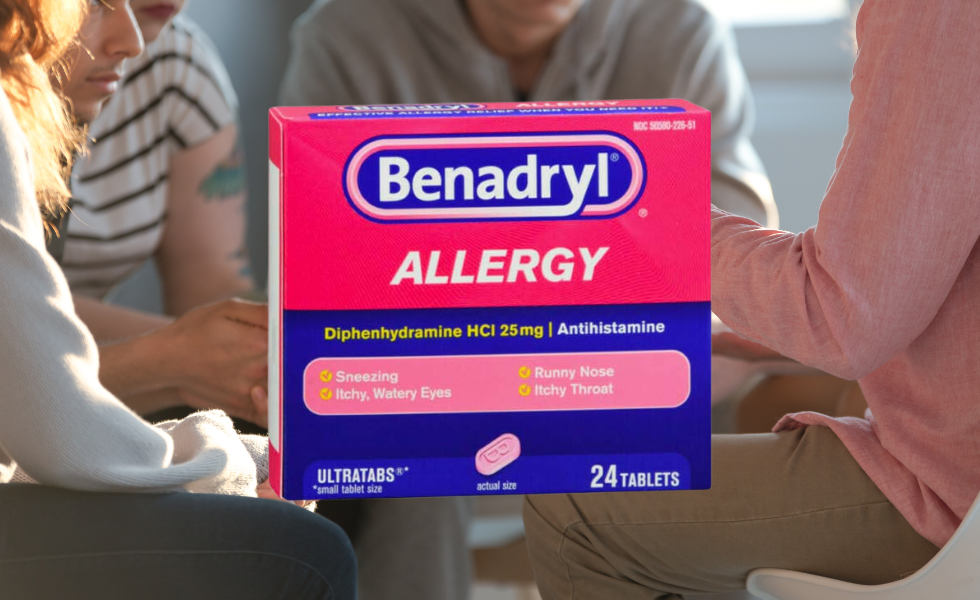About Benadryl
One of the most common over-the-counter allergy medications is Benadryl. Most people have taken it at some point for allergic reactions or itch relief due to its usefulness as an antihistamine. Antihistamines block a natural substance named histamine that your body produces during allergic reactions. Benadryl also contains another chemical substance called diphenhydramine (also shortened to DPH). Diphenhydramine is often present in many over-the-counter sleep aid medications due to its ability to act as a sedative. However, at high doses, diphenhydramine can cause various adverse effects, such as extreme drowsiness, restlessness, confusion, paranoia, loss of coordination, and severe hallucinations that can be indistinguishable from reality.
Becoming Addicted
Like any drug, Benadryl addiction happens through a process of built dependence on its effects. Those who take 25-50mg per day could easily become too reliant and quickly build a tolerance. As the dosage increases, the risk of adverse reactions increases in tandem. Dosages over 300mg within a 24-hour time period are considered extremely dangerous or even fatal.
The “Benadryl Challenge”
In 2020, a trend began to emerge on the Internet called the “Benadryl Challenge.” As the name implies, the goal of the challenge was to take large doses of diphenhydramine to induce strong hallucinations or an otherwise severely altered mental state. Participants of this trend were commonly met with visions of spiders, shadowy or demonic figures, and an overwhelming sense of dread, along with an almost complete loss of motor function. As stated, some overdoses can even prove fatal, with one case resulting in the death of a fifteen-year-old girl in August 2020. Even non-fatal cases can easily become life-threatening experiences. “It was scary. She had fractured sentences and hallucinations. Her resting heart rate was 199,” said a teen’s mother in a press statement released by Cook Children’s Medical Center.
Short-Term Effects
Unlike other substances, the hallucinations induced by Benadryl are often indistinguishable from reality, which makes users even more terrified of what they are currently experiencing. This is because its active ingredient diphenhydramine is not classified as a hallucinogen, but rather as a deliriant. Even after the dysphoric visions subside hours later, victims are met with hangover-like symptoms, including a headache, stomach pain, drowsiness, disorientation, anxiety, and nausea.
Long-Term Effects
Aside from the short-term effects of abusing Benadryl, long-term users will also face a litany of consequences. A study conducted by the University of Washington’s School of Pharmacy concluded that even at a recommended dose, regular diphenhydramine consumption over a period of just three years was associated with a 54% higher dementia risk than those who took the drug for only several months (or not at all). This dementia risk also increases cumulatively with the dosage taken, along with possible memory loss and other cognitive side effects.
JADE Wellness Can Help
Needless to say, Benadryl consumption has great risks, even in small amounts. With its high availability and over-the-counter status, anyone can fall victim to its adverse effects. Like many other drugs, addiction and abuse can quickly spiral out of control and result in grave consequences. If you or a loved one is struggling with addiction to any substance, JADE Wellness is here to help you. JADE Wellness Center is Pittsburgh’s first comprehensive medication-assisted treatment center, also offering individual and group therapy sessions. Call us at 412-380-0100 or visit the JADE Wellness Center website to begin your path to recovery.

